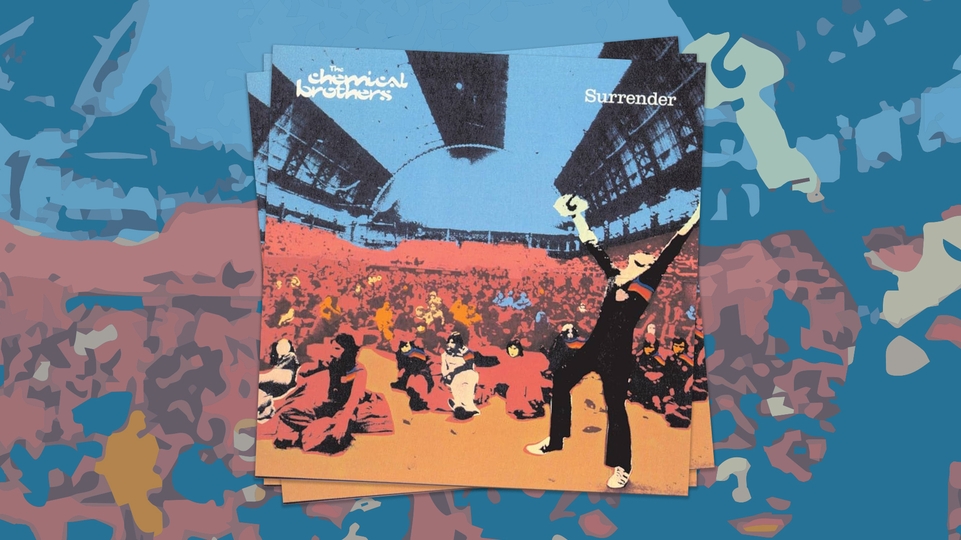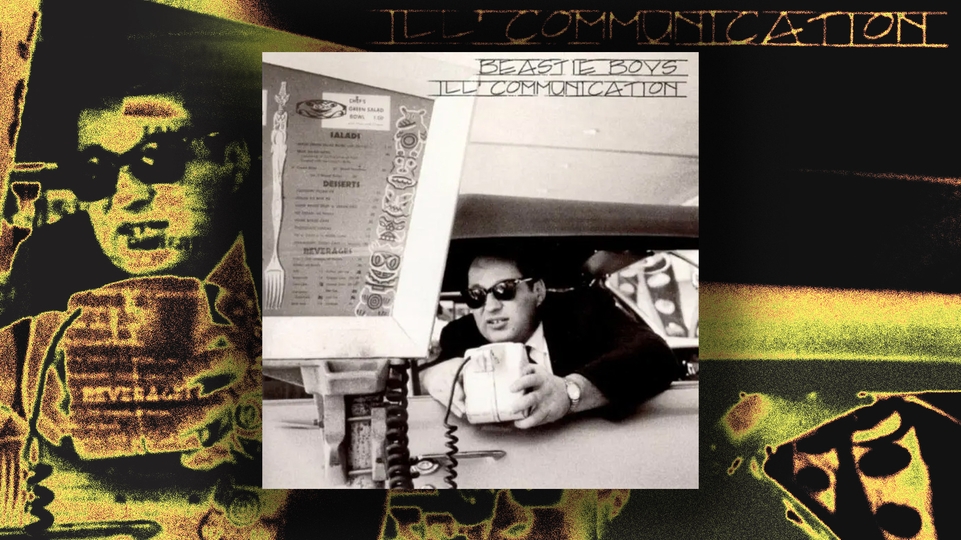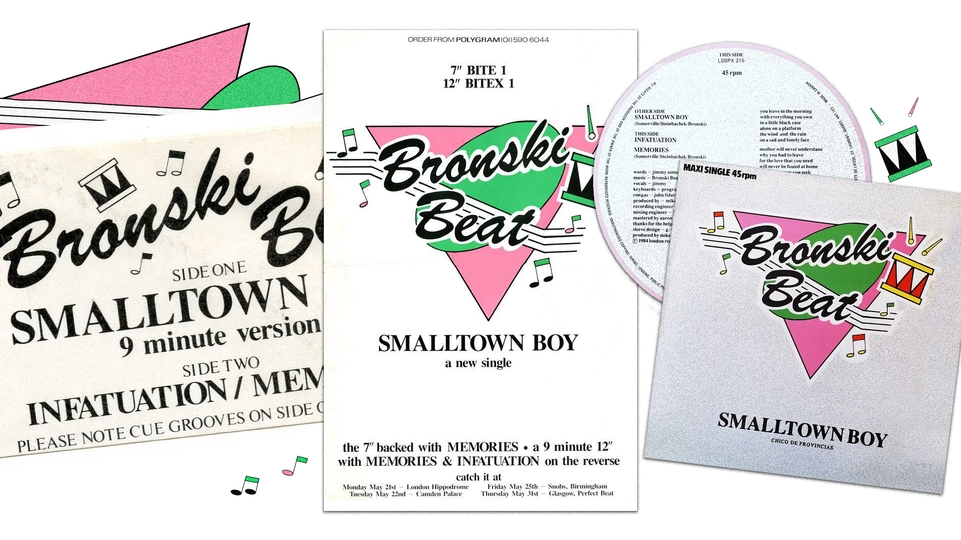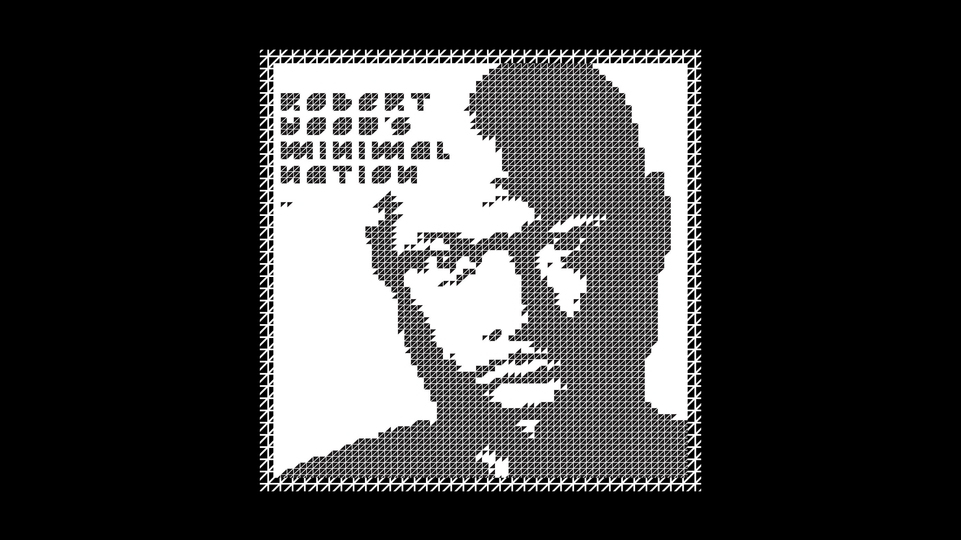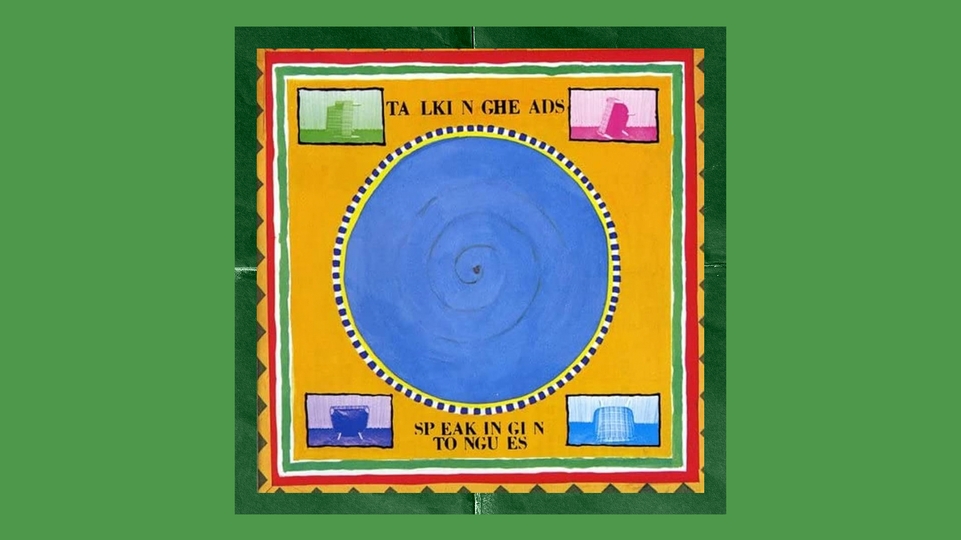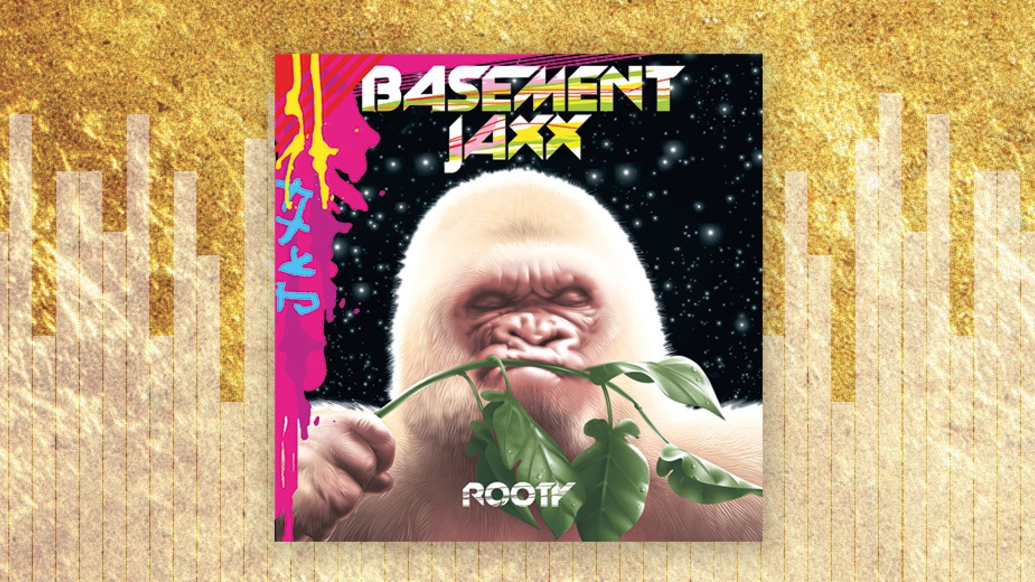
How Basement Jaxx’s ‘Rooty’ conquered pop in the name of UK house music
Released 20 years ago, Basement Jaxx's 'Rooty' is a paean to the adaptable power of house music, a ferocious mixture of musical styles kept in check by massive pop hooks and production discipline. On the anniversary of its release, Ben Cardew remembers an album that presents the sound of a mythical London summer that never quite seems to arrive. One where sunlight streams through the windows and the ice-cream truck is permanently stationed at the corner
‘Rooty’, Basement Jaxx’s second album, was the moment when the London duo conquered pop in the name of UK house music; the apex of the band’s gleefully magpie approach to musical inspiration, and the inexorable conclusion of the pop smarts hinted at on their debut ‘Remedy’.
Their debut, ‘Remedy’, was a fantastic album, and one that transformed the band into UK chart stars on its release in 1999; but it was a record whose production was rooted fairly solidly in the UK underground of house and garage. Two years on, ‘Rooty’ took these inspirations, and added a hefty dose of Timbaland, Bollywood, Latin pop, jazz and Gary Numan. The result was a dayglo rainbow unicorn of an album that retained a sharp pop focus, even as it rummaged around under the sink for yet more sources of inspiration. ‘Rooty’ also threatened to break the band in the U.S., reaching number five on the Billboard dance album chart. It also briefly established Basement Jaxx as a serious rival to Daft Punk — whose own second album, ‘Discovery’, was released a few months earlier — in both commercial and critical appeal.
‘Rooty’’s USP is an endearingly contradictory mixture of the slick and the raw, a paean to the adaptable power of house music. The band would later become rather weighed down by the fussy production on albums like ‘Kish Kash’ — a record that collapsed under the weight of its special guests. But on ‘Rooty’ this ferocious mixture of musical styles was kept in check by massive pop hooks and production discipline. The result is that ‘Rooty’ is one of those albums whose experimental force gets overlooked by its sheer pop saleability.
Take ‘Romeo’, the album’s first single and ravishing calling card. On the face of it, ‘Romeo’ is an energetically soppy R&B house smoocher. But the song’s hidden depths include an unusually dovetailed house rhythm with accents on the first two beats of the bar, a wailing electro siren and lyrics about romantic disappointment (“You used to be my Romeo”), all smuggled in under the shade of an irresistible “Woa-oh-ya-oh” hook. ‘Jus 1 Kiss’, another of ‘Rooty’’s timeless pop singles, allies UK Garage beats to filter house production, a sample of Chic’s ‘You Can't Do It Alone’ and steel drums of pure South London sunshine.
Elsewhere, ‘Where’s Your Head At’ has a snarling metal riff, punk-y vocal, skipping house drums and two Gary Numan samples. It is a mark of how unusual the song is that ‘Where’s Your Head At’ made number 39 on the Billboard Modern Rock chart, and was remade by both EDM star DJ Chuckie and drum & bass producer DJ 1991.


"No one would bat an eyelid at a punk house jam or R&B garage shuffler in 2021; back then, these kind of mixtures were more unusual, which makes ‘Rooty’ a very prophetic album — a 5G release in the era of dial-up."
No one but Basement Jaxx could have pulled off something so irresistibly, unusually London at the time, uniting so many of the sounds that emanated through the city's streets at the time. But Basement Jaxx’s real skill — much like Daft Punk before them on ‘Discovery’ — was to make this bizarre musical fusion sound totally natural. You’ve probably never stopped to think what a very strange song ‘Where’s Your Head At’ is, as you holler along in your bedroom. And that’s kind of the point. This is innovation by popular stealth, the avant-garde surfing on a rocket of pure musical hookery.
This contrast between the sweet and the salty reflects where Basement Jaxx were at in 2001: DJs who ran an underground house night in Brixton (the “Rooty” of the title) but also a chart production act who fielded calls from Janet Jackson about potential collaborations (‘Rooty’’s skulking electro house number ‘Get Me Off’ was apparently written for Jackson, only for her to cool on the project.) The album title reflects this happily inconsistent mix — “It’s to the root, to the essence,” the band’s Felix Buxton told The Telegraph. “It’s about being happy about things that don't fit in”. As does the album’s brilliantly overstated artwork, which features an airbrushed picture of an angry Albino gorilla, munching on a twig.
You can hear the group’s sheer studio confidence on ‘Rooty’, after the success of their debut album showed them that house music could happily co-exist with 2-step, ska and Latin guitars. “When we made the first album, we were questioning every part of the process,” Buxton told Billboard at the time. “This time, we did less questioning. We were confident with who we are and what we wanted to express musically.”
The other big difference between ‘Remedy’ and ‘Rooty’ was that the latter was recorded during the day. “The new album found us working during daylight hours, as opposed to pulling all-nighters like we did for ‘Remedy,’" Simon Ratcliffe, the duo’s other half, told Billboard. You can hear this in the album’s sound: ‘Rooty’ is a record where sunlight streams through the windows and the ice-cream truck is permanently stationed at the corner. The sound of a mythical London summer that never quite seems to arrive.


This idea of a mythical London is key to ‘Rooty’. It’s tempting to say that Basement Jaxx’s second album is a reflection of London in the early 2000s, before 9/11 dampened the city’s party spirit and sent the economy spiralling into recession. And in a way, it is: ‘Rooty’ couldn’t be more London in its musical influences, which range from reggae to R&B, house to hardcore. Listening to ‘Rooty’ is like being stuck in London traffic on a hot summer night, as cars go drifting past, stereos booming.
At the same time, ‘Rooty’ pulls together individual strands of London music that typically wouldn’t mix, particularly in the pre-broadband internet era when musical boundaries were more zealously guarded. No one would bat an eyelid at a punk house jam or R&B garage shuffler in 2021; back then, these kind of mixtures were more unusual, which makes ‘Rooty’ a very prophetic album — a 5G release in the era of dial-up.
You can also credit ‘Rooty’’s take on R&B with helping to usher in the cross over between hip hop and house that would dominate the late 2000s. As much as Basement Jaxx loved Timbaland, someone in the Timbaland/Missy Elliott camp loved Basement Jaxx. In 2002 Missy Elliott called in Basement Jaxx to remix her hip house throwback ‘4 My People’, with the remix being used for the song’s video, a vote of confidence in a UK dance act from a US hip hop heavyweight that was pretty much unprecedented at the time. Timbaland, who co-produced ‘4 My People’, would later be accused of copying Basement Jaxx’s sound on ‘Release’, a song taken from his 2007 album ‘Shock Value’.
The upshot of this is that ‘Rooty’ has aged extremely well (and there’s a fascinating, more club-based version of the album to be found among ‘Rooty’’s wealth of remixes, for those in the mood for something a little less shiny.) ‘Where’s Your Head At’, ‘Romeo’ and ‘Do Your Thing’ — the Hollywood jazz house jam that pops up towards the end of the album — remain staples of the band’s live set to this day. While Basement Jaxx’s trademark mixture of soulful house and UKG sprinkles has been copped by everyone from Disclosure to Gorgon City (who remixed Basement Jaxx’s ‘Back 2 the Wild’ in 2014). At the same time, you can imagine the likes of Rochelle Jordan, Dawn Richard or Erika de Casier covering ‘Jus 1 Kiss’, its slinky 2-stepping R&B sound fitting in extremely well with today’s alt-pop/R&B/electronic fusion.
Alluring as these connections are, though, perhaps the best tribute to ‘Rooty’ as it celebrates its 20th anniversary might be to throw open the windows on a summer day and blast the album at top volume. Rarely has British dance music sounded this overwhelmingly luminous, or this preposterously confident.


